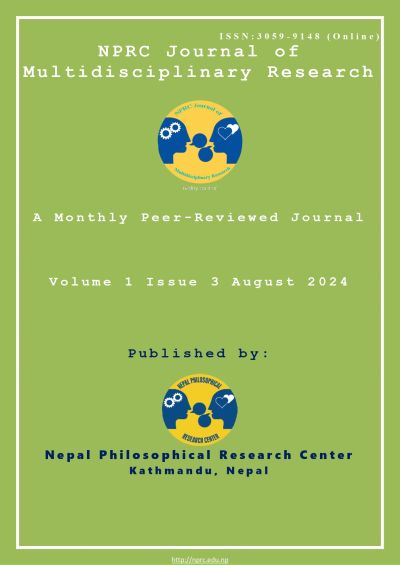Does Renewable Energy (RE) Contribute to Rural Livelihood? Evidence from Nepal
DOI:
https://doi.org/10.3126/nprcjmr.v1i3.70058Keywords:
renewable energy, contribution, rural communities, solar systemAbstract
This study examines the contribution of renewable energy (RE) on rural livelihoods in Nepal using a mixed-methods approach with the consideration of socio-economic development and environmental sustainability. Data were gathered through household surveys, key informant interviews, and focus group discussions across various local levels in Nepal. The findings indicate that the adoption of RE technologies, particularly solar energy, has significantly improved agricultural productivity, income levels, and overall living standards. Solar-powered irrigation systems have enabled farmers to increase crop yields, enhancing food security and income diversification. The study highlights the essential role of community involvement and local governance in the successful implementation and sustainability of RE projects. Despite the initial high costs of RE technologies, the long-term benefits, including reduced energy costs and enhanced environmental sustainability, outweigh these challenges. The reduction in the use of traditional biomass fuels has led to improved air quality and health outcomes in rural households. This research highlights the potential of renewable energy to transform rural livelihoods in Nepal, advocating for continued support and investment in RE initiatives to ensure sustainable development in remote and underserved regions.
Downloads
Downloads
Published
How to Cite
Issue
Section
License
Copyright (c) 2024 The Author(s)

This work is licensed under a Creative Commons Attribution-NonCommercial 4.0 International License.
This license enables reusers to distribute, remix, adapt, and build upon the material in any medium or format for noncommercial purposes only, and only so long as attribution is given to the creator.





